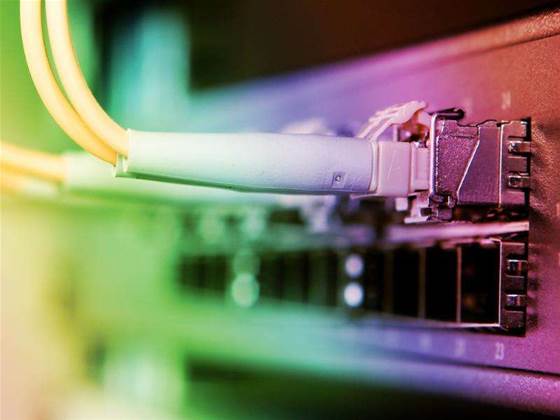Vocus has faced questions from analysts and investors over the value its foray into the retail telco market following its proposed M2 merger would provide for shareholders.

The backbone network provider's share price had fallen slightly to $6.46 following the announcement of the M2 merger, while M2 shares jumped around 24 percent to $10.36 at the time of writing.
The two providers revealed their plans for an all-scrip merger this morning. Under the proposed deal, M2 shareholders would receive 1.625 Vocus shares for each share they hold, giving them around 56 percent of the combined entity.
The merger would create Australia's fourth largest telco, with a market cap of around $3 billion.
M2's board has already given its support to the deal, and the Australian Competition and Consumer Commission has signalled it is unlikely to oppose the merger.
However, Vocus faced questions from investors this morning over the value it would provide the company's shareholders.
Vocus' traditional stomping ground has been in infrastructure, network wholesale and corporate services.
It owns more than 1600km of fibre infrastructure in Australia and 4300km in New Zealand. Its metro network in Australia connects more than 3400 buildings, and it has around 30,000 extra buildings in its footprint.
M2, on the other hand, has largely operated as a wholesale partner leveraging off the infrastructure of others.
It is prominent in the retail broadband market with its Dodo and iPrimus brands, a market Vocus has not operated in.
Vocus CEO James Spencely admitted it was "unusual" for the company to move into the retail market and said he understood it may be surprising to some.
"I think it's something that hasn't been talked about much but there is - as demonstrated by the market - huge value by having infrastructure and retail in the same business. TPG is the great example of that," Spenceley said.
"The two businesses are stronger because of this, they have stronger growth prospects because of it, and are far more defendable. I disagree we've transferred all the value to M2 shareholders.
"It's unusual for us to move into retail and it may be surprising, but TPG may be the greatest example of what can be done with retail and infrastructure in the same business."
The executives were also questioned on whether the proposed deal was likely to spark the attention of the competition watchdog.
Following the merger of TPG and iiNet earlier this year, the ACCC said any further consolidation of the major broadband players would likely raise competition concerns.
However, it today said it did not consider either business to fall within that category.
Vocus also said it had received notice from the ACCC that indicated the watchdog did not plan to oppose the merger.
"We're not competition lawyers but we believe this strengthens the combined business and provides more competition rather than less. So we remain positive that there won't be an issue," Spenceley said.
"We believe this is a vertical integration of two different telco businesses and we don't believe there will be too many problems with any of the competition councils in either Australia or New Zealand," Vocus chairman David Spence said.
Should the deal go ahead, the new entity will operate under the Vocus brand.
It would boast a product portfolio including retail internet, electricity and gas; corporate and wholesale internet and IP voice; data centre and cloud services; international and domestic bandwidth; and dark fibre.
A scheme booklet will be issued to M2 shareholders later this year, and a vote will be held in early 2016.


_(28).jpg&h=140&w=231&c=1&s=0)

_(36).jpg&h=140&w=231&c=1&s=0)






 iTnews Executive Retreat - Security Leaders Edition
iTnews Executive Retreat - Security Leaders Edition
 iTnews Cloud Covered Breakfast Summit
iTnews Cloud Covered Breakfast Summit
 The 2026 iAwards
The 2026 iAwards











_(1).jpg&h=140&w=231&c=1&s=0)



